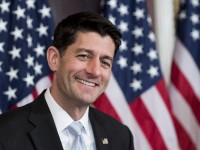
The same hands that held the gavel in the House of Representatives since Oct. 2015 will hold another two years.
Paul Ryan, 46, was re-elected Speaker of the House on Jan 3. at the House of Representatives Chamber.
The Wisconsin native ran against Democratic candidates Nancy Pelosi, Tim Ryan, Jim Cooper, John Lewis, and Republican candidate Daniel Webster, according to the The “Washington Post.” Ryan received 239 of the votes, and Pelosi received 189. The other candidates received votes in the single digits. Every Republican representative voted for Ryan except Thomas Massie.
Ryan’s near unanimous win testified his party’s strength and domination in the House, a force that will be working to repeal acts made during the Obama administration. According to the U.S. House of the Representatives Press Gallery, there are currently 241 Republicans and 194 Democrats in the house.
Patrick Griffin (Social Sciences teacher) outlined the role of the House Speaker.
“The main responsibility of the Speaker of the House is to coordinate and lead the efforts of the House of Representatives,” said Griffin.
He explained that House Speaker also holds House sessions, brings forward potential bills, especially those that concern money, and directs how those bills will be debated, among other responsibilities.
“On top of all of that, Speaker Ryan must represent the House itself publicly, and the Republican Caucus to a great extent, while also coordinating with the Senate and President. Our Constitution defines the primary responsibility of all federal employees, be they Speaker, President, etc…, as upholding the Constitution itself and what it represents in the interest of ‘we the people,‘“ he said.
Moreover, Republicans are looking forward to more progress under Paul Ryan and the Republican administration of President Trump. However, not everyone agrees.
“I feel like he won’t do anything monumental or bring any changes,” said freshman Julia Izquierdo.
Griffin explained that with a majority of Republican members in the House and a Republican House Speaker, passing bills will happen faster.
“When one party controls House, Senate, and the Presidency, passing legislation is much quicker and easier. The danger when you unified rule in this way is that when one party has all of the power, it tends to unify the opposition and encourages the majority party coalition to argue among its own members,” Griffin said.
During Ryan’s acceptance speech, he addressed his new policies titled “A Better Way.” One of these policies includes repealing and replacing President Obama’s Affordable Care Act. Whether or not doing so is “a better way” is a topic of debate nationwide.
“It’s a good name, but he hasn’t been doing anything good, like defunding planned parenthood,” said Izquierdo.
“Speaker Ryan’s policies are long established as a part of Republican thinking in terms of budget and spending, going back to his time on the Ways and Means Committee,” said Griffin.
How this coalition then interacts with Donald Trump’s policy vision will likely determine the next four years to a great degree.




